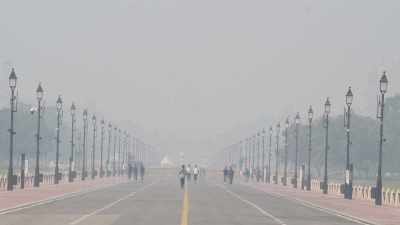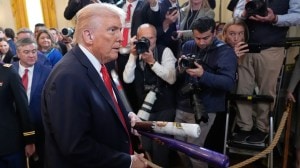Ritu Sarin is Executive Editor (News and Investigations) at The Indian Express group. Her areas of specialisation include internal security, money laundering and corruption. Sarin is one of India’s most renowned reporters and has a career in journalism of over four decades. She is a member of the International Consortium of Investigative Journalists (ICIJ) since 1999 and since early 2023, a member of its Board of Directors. She has also been a founder member of the ICIJ Network Committee (INC). She has, to begin with, alone, and later led teams which have worked on ICIJ’s Offshore Leaks, Swiss Leaks, the Pulitzer Prize winning Panama Papers, Paradise Papers, Implant Files, Fincen Files, Pandora Papers, the Uber Files and Deforestation Inc. She has conducted investigative journalism workshops and addressed investigative journalism conferences with a specialisation on collaborative journalism in several countries. ... Read More
Tax, RBI, FEMA: ED gets Andy papers, looks at options
When Enforcement Directorate officials returned to their headquarters at the Lok Nayak Bhawan this evening after searching the premises of A...

When Enforcement Directorate officials returned to their headquarters at the Lok Nayak Bhawan this evening after searching the premises of Andaleeb Sehgal and his family, they were carrying with them documents collected from his family members and with which they hope to confront him.
With Sehgal and his family members having to turn in their passports and details of bank accounts, there are four possible actions that could be initiated against him and his company, Hamdan Exports, should violations emerge.
With Income Tax (IT) sleuths joining he probe with the ED, the first could be violation of IT rules if unaccounted income of the company or its proprietors is traced to bank accounts not declared in Income Tax returns. If any violations are traced, IT Department can ask for returns of 10 years to be re-assessed.
As a trading house, the agencies will scrutinise if remittances of export proceeds were received as per norms laid down by the Reserve Bank of India (RBI) within the six-month limit and if not, whether the RBI had been intimated about the quantum and reasons for delayed remittances.
With the Foreign Exchange Regulation Act (FERA) being repealed and replaced by the Foreign Exchange Management Act (FEMA) and the Money Laundering Act coming into force, ED officials said they would work backwards and look for violations, again, using his banking transactions and receipts as a guide.
‘‘That is our standard practice. We will work backwards, see what amounts were deposited, who deposited it and whether the receipts were laundered or declared sums.
The probe may be a long, long one,’’ said one ED official involved in the probe.
The Money Laundering Act covers two sets of predicate or scheduled violations, listed under two sections, Part A and Part B. Whle there is no limit for the first set of offences, there is a benchmark of the violation being over Rs 30 lakhs in the second set of offences.
However, for the Money Laundering Act to be invoked, an offender will first have to be charged under one of the specified offences and the transactions may or may not have a foreign exchange component.
The ED, which has recently been nominated as the agency for executing the cases, is not yet geared to tackle large cases. The detailed rules are yet to be framed and even the special court is yet to be designated.
The FEMA could be invoked if a scrutiny of banking records reveal transactions which have been done through non-banking channels or the hawala route.
The existing law has provisions for penalties upto three times the extent of violations being slapped on the offender.





- 01
- 02
- 03
- 04
- 05



























